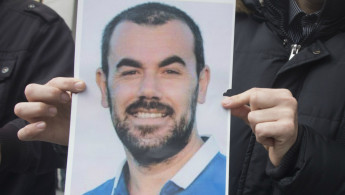Nasser Zefzafi - who earlier this year lost an appeal against a 20-year prison term - said in a taped message that he "suffered the worst forms of torture" following his arrest in June 2017.
In the message from jail shared widely on social media this week, Zefzafi said he was "beaten up... raped with a stick... forced to undress".
His father, Ahmed Zefzafi told AFP the audio tape was authentic.
On Thursday the penitentiary administration said it had opened an "administrative investigation" into the details on the audio tape.
And on Friday it announced the sacking of the director of the Fez prison where Zefzafi is detained.
Zefzafi was convicted on charges of threatening state security in June last year, along with three other members of the Hirak protest movement which rocked Morocco in 2016 and 2017.
Their sentences were upheld in April by a court of appeal in Casablanca.
In December last year, Amnesty International said the trial of Hirak members exposed "serious flaws" with some confessing under torture.
The protests took hold in the country's marginalised Rif region in October 2016.
The social unrest was sparked by the death of a fisherman and escalated into a wave of demonstrations demanding more development in the neglected region and railing against corruption and unemployment.
Authorities accused the activists of having separatist aims.
Zefzafi, who is now 40, emerged as the face of the movement as a result of his rallying speeches, accusing authorities of corruption.
In August he and five other activists issued a statement accusing authorities of torturing them during investigations.
Follow us on Twitter and Instagram to stay connected





 Follow the Middle East's top stories in English at The New Arab on Google News
Follow the Middle East's top stories in English at The New Arab on Google News


